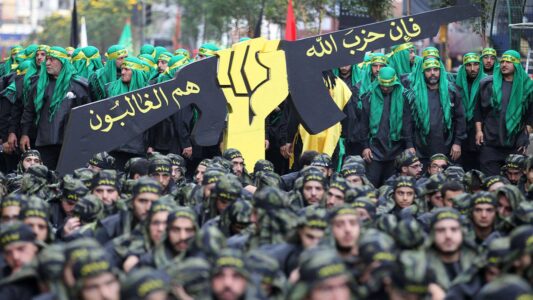
Hezbollah terrorist group is leading an economy of resistance in Lebanon
For over a year, there has been a severe economic and political crisis in Lebanon, with no end in sight. In view of this, the Lebanese Resistance movement, Hezbollah, has taken a series of steps aimed at helping the financially insecure cope with the negative impact of the economic crisis which has resulted in a shortage of goods and skyrocketing prices.
In a bid to alleviate the hardship for the general population, Hezbollah has opened a chain of supermarkets, selling inexpensive goods at subsidized prices that are about 30 to 50% lower than the market price.
Since October 2019 there has been a severe financial, economic and political crisis in Lebanon, with no end in sight.
Underlying the crisis are fundamental problems mainly stemming from the endemic corruption and a chronic state of political instability gripping the country.
Additional difficulties have been added to the fundamental problems, the COVID-19 crisis; the negative effects of US sanctions on the Lebanese economy and banking system, the explosion of the port of Beirut, difficulties stemming from the global war on Syria and the lack of external assistance due to Lebanon’s failure to carry out the reforms required by the international community.
This translated into a shortage of basic and essential products like food, fuel and medication, difficulties in the banking system and even the initial signs of weakened security.
In view of this, Hezbollah has made a series of moves aimed at helping the Lebanese population cope with the negative impact of the economic crisis.
As the Lebanese market suffers from a shortage of goods and skyrocketing prices, Hezbollah has opened a chain of supermarkets, schools and oil depots in southern Lebanon, South Beirut, and the Bekaa Valley.
The Supermarkets sell inexpensive goods at subsidized prices that are about 30 to 50% lower than the market prices.
Payment is made through a special shopper’s card, or the al-Sajjad card, named after the fourth Shia Imam who attached great importance to mutual solidarity in society.
A drug shortage in Lebanon also prompted Hezbollah to begin purchasing Syrian and Iranian inexpensive drugs and medical products, which were distributed to Hezbollah affiliated pharmacies to cover the shortage.
A fuel shortage that has led to rising prices of fuel products and frequent power outages also prompted Hezbollah to purchase fuel products and supply fuel to gas stations in the resistance areas where the US undeclared sanctions are leading to critical fuel shortages in gas stations.
To help the Lebanese people overcome the severe economic crisis compounded by the collapse of the national currency and an insane increase in prices, Hezbollah has become the last resort for the Lebanese public to survive the worst economic crisis in the country’s modern history.
Following the difficulties caused by the economic crisis in Lebanon, the response by Hezbollah was direct aid of its community by opening a chain of supermarkets in South Lebanon, in South Beirut, and in the Bekaa Valley.
These supermarkets are selling inexpensive goods at subsidized prices, despite the fact that they are not subsidized goods, but with prices lower than 50% of the market price.
Source: Press TV





